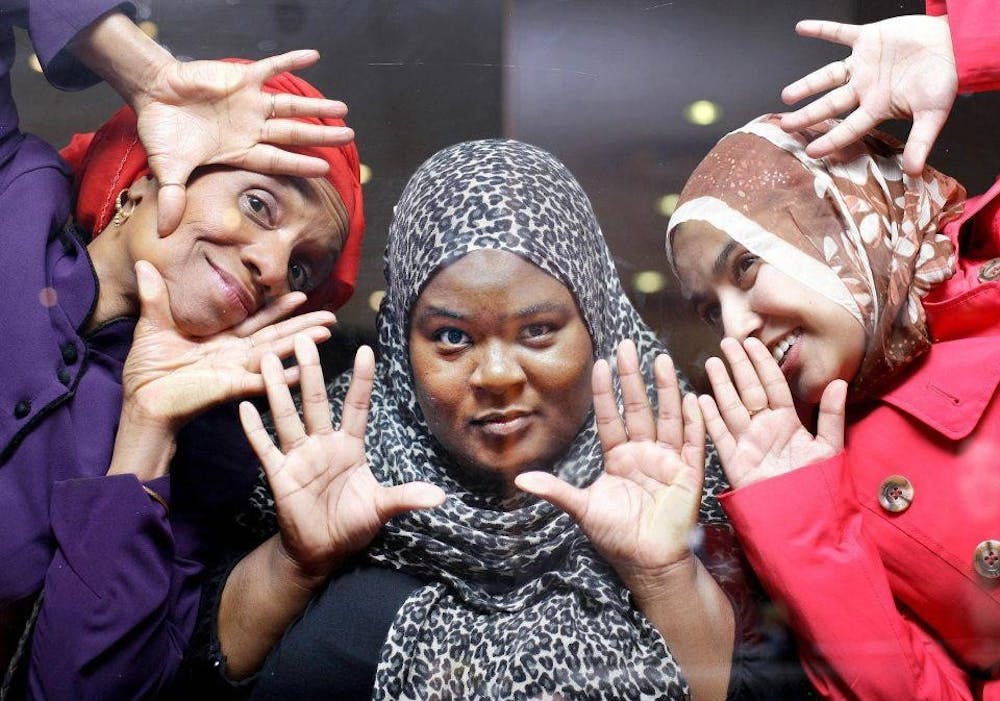A window into the tries and triumphs of the lives of Muslim-American women will be uncovered through The Hijabi Monologues at 7:30 p.m. Feb. 26 in Whitley.
The monologues, whose name refers to the traditional veil Muslim women wear to cover their heads, is part of the Ripple Conference, an interfaith conference for college students sponsored by Elon University and the Interfaith Youthcore beginning Feb 25. The conference invites poets, storytellers and musicians to lead workshops and forums for participants.
The monologues have been performed around the world and in universities across the country by a group of women who share their realities of Muslim women in the United States.
The stories range from humorous to more serious, discussing issues of bias and the struggle as of living as a religious minority in the United States.
Joel Harter, associate chaplain for Protestant life, first saw the performance at the University of Chicago and pitched it to Jan Fuller, university chaplain, in hopes of bringing the event to Elon.
“I knew that we were trying to do some more education and events about Islam,” Harter said. “Most people who come to this are not going to be Muslim, so this is a good way to do some education in a way that will be more accessible and fun.”
According to Anna Torres, Muslim Life coordinator, a Pew Research Center poll determined that knowing someone personally within a religious minority group is correlated with having positive feelings toward that group.
This study has always stuck out to Torres and she says it’s one of the reasons initiatives like the Hijabi monologues are so important.
“I definitely think they are important because they do an excellent job of showing a wide spectrum of experiences in a very engaging way because so often we don’t know anyone of minority religious groups,” she said.
The goal of The Hijabi Monologues is education, using it to break the stereotypes that are often perpetuated by the media and society at large.
“A lot of people maybe have assumptions about Muslims, but they don’t actually know anyone personally,” Harter said. “So this is a chance to actually hear some stories and real experiences and understand that Muslims — like any other religious group — are not all the same. The overwhelming majority of them are good, decent people and not someone to be afraid of. “
Though The Hijabi Monologues have been performed numerous times, the installment at Elon will include a few new pieces.
One will show an African American-Muslim perspective and discuss the Black Lives Matter movement. Another will discuss the Chapel Hill shootings last year, and the effect they had on the Muslim community.
“It’s traumatized by headlines, but it’s about how that shooting effected Muslim Americans everywhere,” Harter said.
About four different performers will deliver about a dozen monologues during the performance.
As part of the Ripple Conference, the event will allow students to experience the monologues with others from varying backgrounds and religious beliefs. There will be discussions afterwards for students to engage in dialogue about the issues brought up in the monologues.
Leading up to the performance on Friday, Muslim Life sponsored Elon Hijab Day when students were encouraged to wear a Hijab in solidarity. Students of all religions wore hijabs around campus Feb. 18 to show their support.
According to Harter, while Elon does more than other universities in the way of religious education, there is always more work to do.
Torres-Zeb said even if one kind of diversity is accomplished on campus, like racial or economic, things can never be universally diverse.
“I think that Elon is definitely making a lot of steps and is open to increasing diversity,” she said. “I don’t think diversity is ever something that is achieved.”


